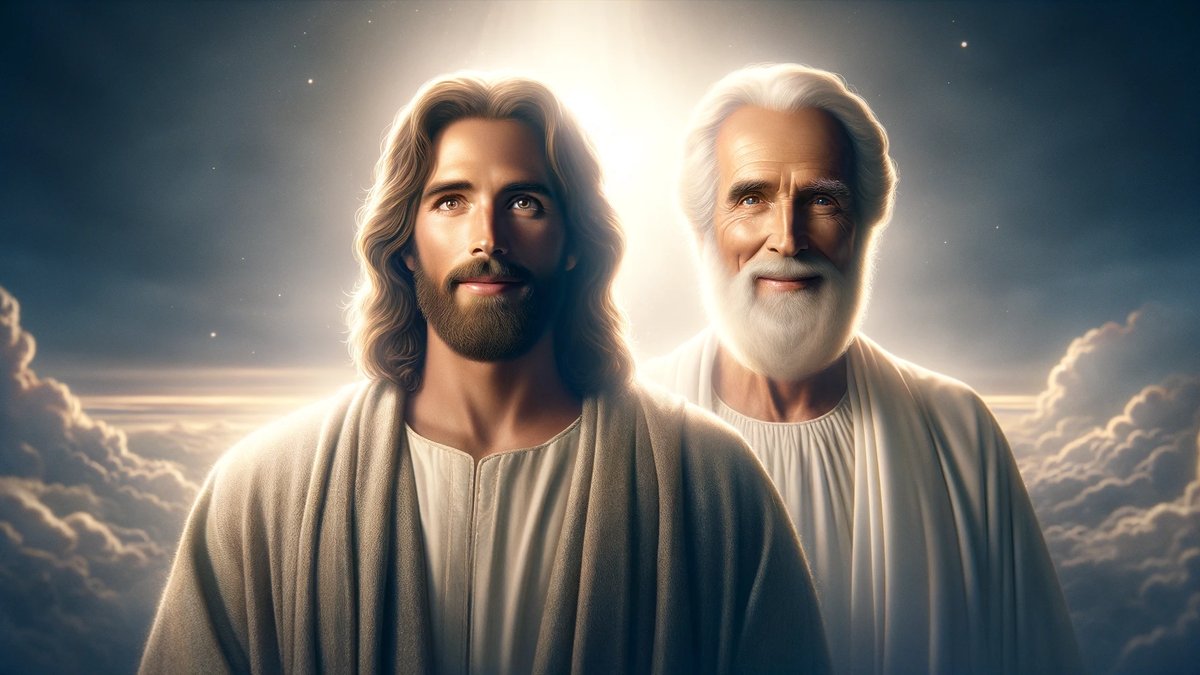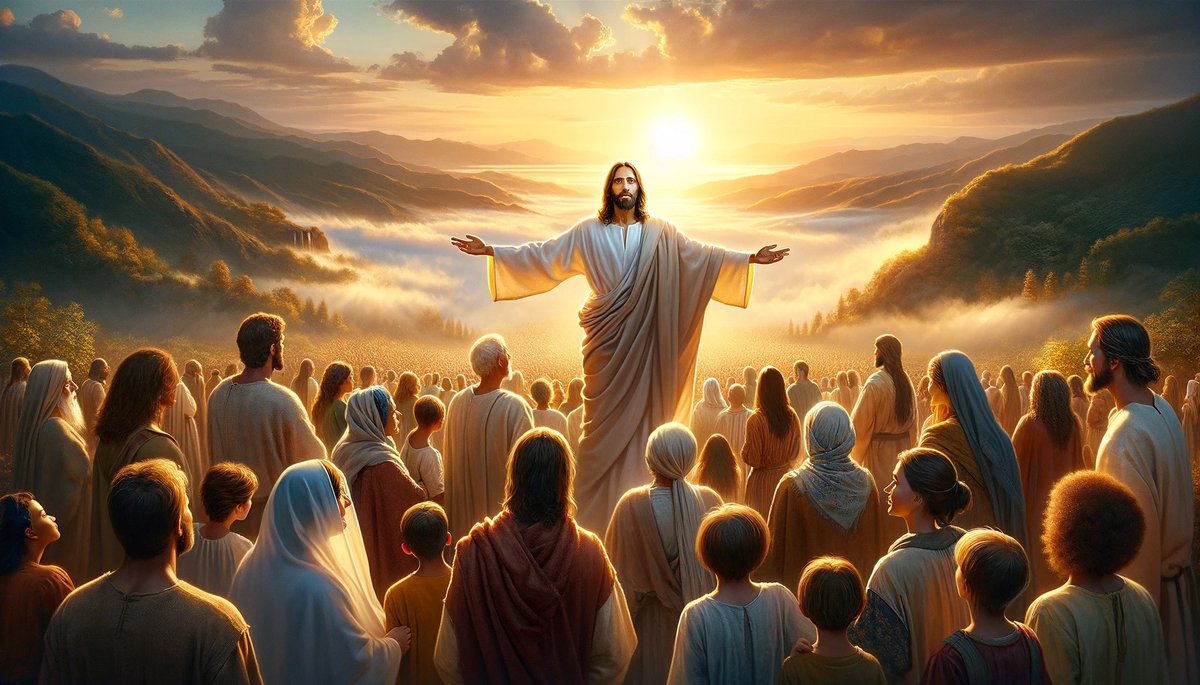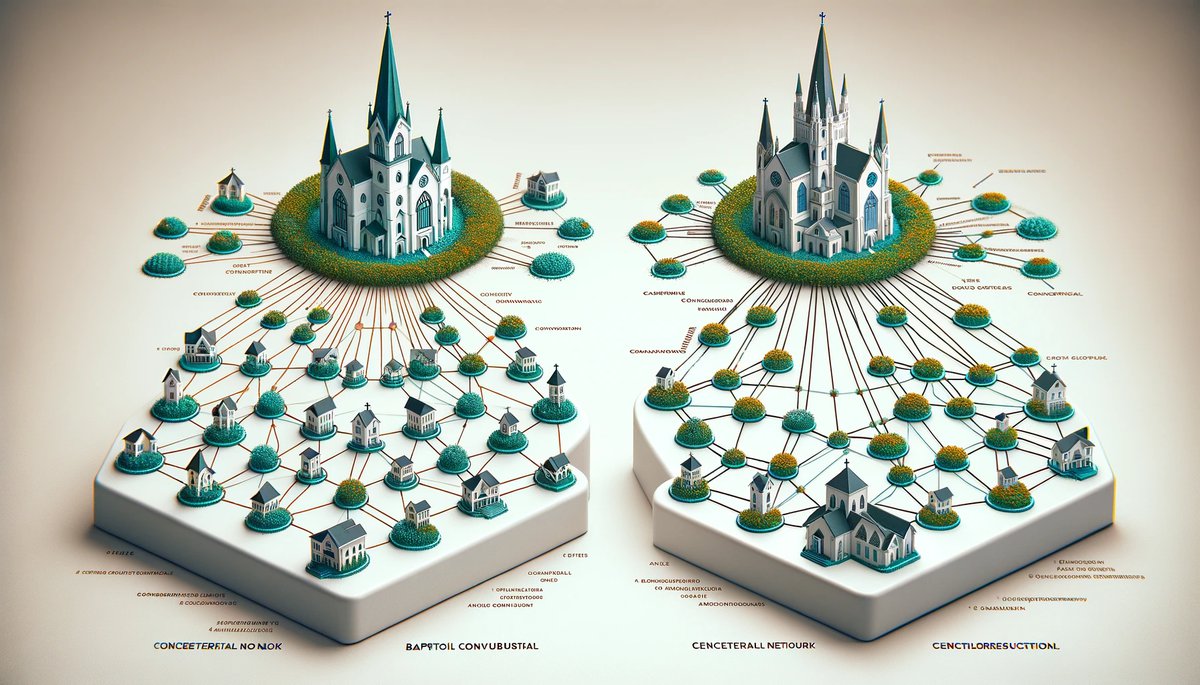Home>Christian Videos>Bible Stories>What Is The Difference Between God And Jesus Christ


Bible Stories
What Is The Difference Between God And Jesus Christ
Published: March 2, 2024
Jason DeRose, Managing Editor at Christian.net, uses his expertise in religion and journalism to deepen understanding of faith's societal impacts. His editorial leadership, coupled with a strong academic background, enriches the platform’s diverse content, earning him recognition in both journalism and religious circles.
Discover the key distinctions between God and Jesus Christ in the Bible stories. Explore the divine relationship and significance of each figure. Gain a deeper understanding of their roles and teachings.
(Many of the links in this article redirect to a specific reviewed product. Your purchase of these products through affiliate links helps to generate commission for Christian.net, at no extra cost. Learn more)
Table of Contents
Understanding the Nature of God
God, in the Christian faith, is believed to be the supreme being, the creator of the universe, and the source of all moral authority. The nature of God is often described as omnipotent, omniscient, and omnipresent. This means that God is all-powerful, all-knowing, and present everywhere at the same time. The concept of God as the ultimate authority and the embodiment of love and justice is central to the Christian belief system. The nature of God is often depicted as transcendent, existing beyond the physical realm, and immanent, being present and active in the world.
-
Omnipotence: God is believed to be all-powerful, capable of doing anything that is in accordance with His nature. This attribute is often referred to as the sovereignty of God, emphasizing His supreme authority and control over all things.
-
Omniscience: God is considered to be all-knowing, having complete and perfect knowledge of past, present, and future events. This attribute underscores the wisdom and understanding of God, as well as His ability to guide and govern the world with perfect knowledge.
-
Omnipresence: The belief in God's omnipresence asserts that He is present everywhere at the same time. This concept highlights the immanence of God, His closeness to humanity, and His involvement in the lives of individuals.
-
Transcendence and Immanence: The nature of God is often described as both transcendent and immanent. His transcendence signifies His existence beyond the physical universe, while His immanence emphasizes His presence and activity within the world.
Understanding the nature of God is fundamental to the Christian faith, as it shapes the way believers perceive and relate to the divine. The attributes of omnipotence, omniscience, omnipresence, transcendence, and immanence contribute to the understanding of God's nature as revealed in the Christian scriptures.
Exploring the Identity of Jesus Christ
Jesus Christ is a central figure in Christianity, revered as the Son of God and the savior of humanity. His identity encompasses both divine and human aspects, making Him a unique and pivotal figure in religious history. According to Christian doctrine, Jesus is believed to be the incarnation of God, the second person of the Holy Trinity. His birth, life, teachings, death, and resurrection are foundational to the Christian faith, shaping the beliefs and practices of millions of followers worldwide.
-
Divine Nature: The identity of Jesus Christ as the Son of God reflects His divine nature. Christians believe that Jesus is of the same essence as God the Father, sharing in the divine attributes of eternity, holiness, and sovereignty. The recognition of Jesus as divine underscores His role in reconciling humanity with God and offering salvation through His sacrificial death.
-
Human Nature: In addition to His divine identity, Jesus Christ is also understood to possess a human nature. His earthly life, characterized by experiences of joy, sorrow, temptation, and compassion, exemplifies the human aspect of His identity. The belief in the incarnation emphasizes that Jesus, while fully divine, also took on human form, demonstrating empathy and solidarity with humanity.
-
Messiah and Redeemer: Within Christian theology, Jesus Christ is acknowledged as the promised Messiah, fulfilling the prophecies of the Old Testament and bringing about the redemption of humanity. His identity as the Redeemer signifies His role in atoning for the sins of humanity and offering the gift of eternal life through faith in Him.
-
Teachings and Miracles: The identity of Jesus Christ is further illuminated through His teachings and miraculous deeds as recorded in the Gospels. His moral teachings, parables, and demonstrations of divine power exemplify His authority and wisdom. The miracles attributed to Jesus, including healing the sick, raising the dead, and calming the storm, attest to His divine identity and mission.
-
Crucifixion and Resurrection: The pivotal events of Jesus' crucifixion and resurrection are integral to understanding His identity. His voluntary sacrifice on the cross and subsequent triumph over death are regarded as essential components of His divine mission, affirming His identity as the Son of God and the source of salvation for humanity.
Exploring the identity of Jesus Christ reveals the multifaceted nature of His being, encompassing both divine and human attributes. His significance as the Son of God, the Messiah, and the embodiment of divine love and redemption underscores His enduring impact on Christian faith and theology.
Comparing the Attributes of God and Jesus Christ
When comparing the attributes of God and Jesus Christ within the context of Christian theology, several key distinctions and parallels emerge, shedding light on their respective roles and characteristics.
-
Omnipotence and Divine Authority:
- God is acknowledged as omnipotent, possessing unlimited power and authority over all creation. His sovereignty and ability to accomplish all things are central to His divine nature.
- Jesus Christ, as the Son of God, is also depicted as possessing divine authority and power. His miracles, teachings, and ultimate triumph over death attest to His omnipotence and role as the divine agent of God's will.
-
Omniscience and Wisdom:
- God's omniscience encompasses His perfect knowledge and understanding of all things, past, present, and future. His wisdom is regarded as infinite and unerring.
- Jesus Christ, as the embodiment of divine wisdom, demonstrated profound insight and understanding in His teachings and interactions. While His earthly ministry reflected a degree of voluntary limitation in knowledge, His divine nature encompassed the wisdom and omniscience of God.
-
Omnipresence and Immanence:
- The omnipresence of God signifies His presence in all places simultaneously, emphasizing His transcendence beyond the confines of time and space.
- Jesus Christ, during His earthly ministry, exhibited immanence by being physically present among humanity. His divine nature, while not omnipresent in the same sense as God the Father, exemplified a unique manifestation of God's presence among His creation.
-
Eternality and Incarnation:
- God is eternal, existing outside the limitations of time and enduring throughout all ages. His timeless nature underscores His unchanging and everlasting essence.
- Jesus Christ, as the incarnate Son of God, entered into human history, experiencing temporal existence while retaining His eternal nature. The incarnation represents a profound union of the divine and human, bridging the gap between God and humanity.
-
Holiness and Moral Exemplar:
- God's holiness is absolute and without blemish, serving as the standard of moral perfection and purity.
- Jesus Christ, as the perfect embodiment of holiness, lived a sinless life, serving as the moral exemplar for humanity. His teachings and actions reflected the divine standard of righteousness and moral purity.
-
Savior and Redeemer:
- God is recognized as the ultimate source of salvation and redemption, offering forgiveness and reconciliation to humanity through His grace and mercy.
- Jesus Christ, as the Redeemer and savior of humanity, fulfilled the redemptive plan of God through His sacrificial death and resurrection, providing the means for humanity's reconciliation with God.
In comparing the attributes of God and Jesus Christ, it becomes evident that while distinct in their roles and manifestations, both embody divine qualities that are integral to the Christian understanding of the nature of God and the identity of Jesus as the Son of God.
Examining the Role of God and Jesus Christ in Christianity
The role of God and Jesus Christ in Christianity is fundamental to the belief system and practices of followers. Understanding their respective roles provides insight into the divine plan for humanity and the relationship between God and His creation.
-
Creator and Sustainer:
- God is revered as the creator of the universe, bringing all things into existence through His divine will. His role as the sustainer of creation underscores His ongoing care and providence for the world.
- Jesus Christ, as the agent of creation, is depicted as instrumental in bringing forth the cosmos and upholding the order of the universe. His divine role in creation aligns with His identity as the Son of God and the Word through whom all things were made.
-
Revelation and Salvation:
- God's role in revealing Himself to humanity is evident through divine revelation, including the scriptures, prophetic messages, and the incarnation of Jesus Christ. His desire to communicate with humanity and offer guidance is central to His role as the source of truth and salvation.
- Jesus Christ serves as the ultimate revelation of God's love and redemptive plan for humanity. His life, teachings, and sacrificial death on the cross embody God's initiative to reconcile humanity with Himself, offering the gift of salvation and eternal life.
-
Divine Authority and Kingship:
- God's sovereignty and divine authority are reflected in His role as the supreme ruler and king over all creation. His reign is characterized by justice, mercy, and righteousness, establishing the moral order of the universe.
- Jesus Christ, as the exalted Lord and king, shares in the divine authority of God the Father. His resurrection and ascension affirm His reign over all things, and His future return is anticipated as the fulfillment of God's ultimate plan for the restoration of creation.
-
Redemption and Atonement:
- God's role in redemption is manifested through His grace and mercy, offering forgiveness and reconciliation to humanity despite its fallen state. His sacrificial love provides the means for humanity to be restored to a right relationship with Him.
- Jesus Christ's role in atonement and redemption is exemplified through His voluntary sacrifice on the cross, bearing the sins of humanity and providing the path to reconciliation with God. His resurrection signifies the triumph over sin and death, securing the hope of eternal life for believers.
-
Triune Nature and Unity:
- God's triune nature as Father, Son, and Holy Spirit underscores the unity and diversity within the Godhead. The interrelationship of the divine persons reflects the perfect harmony and love within the Godhead.
- Jesus Christ's unity with God the Father and the Holy Spirit highlights the interconnectedness of the Trinity, emphasizing the oneness of God in three persons. His role as the mediator between God and humanity demonstrates the unity of purpose within the Trinity for the redemption and restoration of creation.
Examining the role of God and Jesus Christ in Christianity reveals the depth of their involvement in the divine plan for humanity, the cosmos, and the fulfillment of God's purposes. Their complementary roles and attributes contribute to the rich tapestry of Christian theology and the lived experience of faith for believers.















